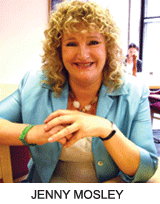 One of the great questions which confronts governments, school managements and educationists around the world, is how can schools transform themselves to unlock the potential of every student and teacher? How can government efforts to improve learning outcomes be combined with their obligation to put citizenship on the curriculum, promote healthy schools and place positive behaviour high on their agendas?
One of the great questions which confronts governments, school managements and educationists around the world, is how can schools transform themselves to unlock the potential of every student and teacher? How can government efforts to improve learning outcomes be combined with their obligation to put citizenship on the curriculum, promote healthy schools and place positive behaviour high on their agendas?
I believe that a growing number of primary schools around the world — and in India in particular — are beginning to show how to do this through whole school improvement programmes that I have been attempting to popularise, which involve helping school communities — trustees, principals, teachers, parents and students — set up a series of circle meetings (for all children and adults), through which they resolve organisational and interpersonal issues. Secondary schools, however, have yet to warm to this model to help them with their particular challenges.
Constant change, inspection and target-setting have taken their toll on the psyche of teachers around the world. Yet research proves that teachers with sound self-esteem and strong sense of self-respect enable develop-ment of high self-esteem pupils, who in turn can realise their true academic and social potential and grow into responsible adults aware of their citizenship duties.
On the other hand, teachers with low self-esteem, burdened with physical exhaustion, can sink into demoralising patterns of nagging, negati-vity, erratic responses and low expectation. Therefore all adults engaged with schools need to feel valued, respected and appreciated. If school managements find ways of meeting the needs of adults, teachers and staff, they can then release the institutional energy necessary for them to meet the needs of pupils. Until all adults feel emotionally safe and supported within schools, excellence cannot be attained.
Therefore in the whole school Quality Circle Time model devised by me, the first priority is to enhance the emotional health of adults within school communities.
In all such programmes the whole school community is invited and familiarised with a range of collective self-care strategies. Team-building and corporate policies to help teachers and staff build a caring school environment are encouraged. The plain truth is that unless adults start to ‘model’ happiness, pleasure and respect, an entire generation of children refusing to grow up will be produced! As it is in Britain, the big picture is that one in five children suffers mental health problems. Such children in particular need to be surrounded by energetic yet calm role models.
For communities to interact with each other, the commitment of school managements to setting up on-going, time-tabled processes of circle meetings is a precondition. In such meetings, which are governed by strict ground rules, all individuals tackle key inter-personal issues impeding the progress and development of their school. Circle meetings incorporate a range of strategies to ensure that everyone feels supported, and that their relationship-building skills are continuously being enhanced.
Likewise through Quality Circle Time forums, children learn the ‘lived-in’ reality of what it means to be citizens. They learn to be part of class communities for whom they are responsible. They participate in democratic decision-making processes and learn to represent and respectfully advance their views, and lobby for their demands.
In the initial stages of this process, circle meetings serve as the framework through which the school establishes a firm, circular sequence or recommendations for the creation of an effective learning institution.
This requires implementation of a visible moral values system, with attendant practical imperatives (safety routines); establishment of a highly motivational system of sanctions and incentives democratically shared by all adults and children; promotion of strategies to create calmer, more productive lunchtimes; implementation of ‘daily success programmes’, therapeutic intervention to help children who are uninspired by traditional motivational strategies; and a shared back-up system of support to teachers under unacceptable levels of stress. Once all these structures are in place, circle meetings, time-tabled for all adults and children, continue to act as a review body.
Several research studies indicate that once a circle of people have learnt to listen and respect each other, pupils feel it’s safe to become creatively adventurous without fear of backlash if they make a mistake, as there is now an institutional culture of support and celebration.
Courage is required to build, grow, and transform school cultures; and courage is fuelled by the quality of mutually supportive relationships within learning institutions.
(Jenny Mosley is a former education lecturer at Bristol and London universities and currently a London-based UK and international education consultant)